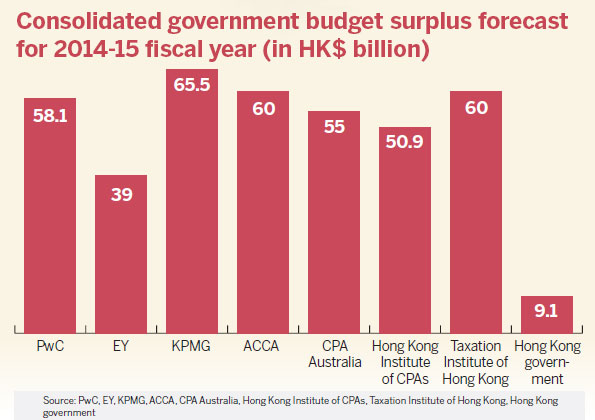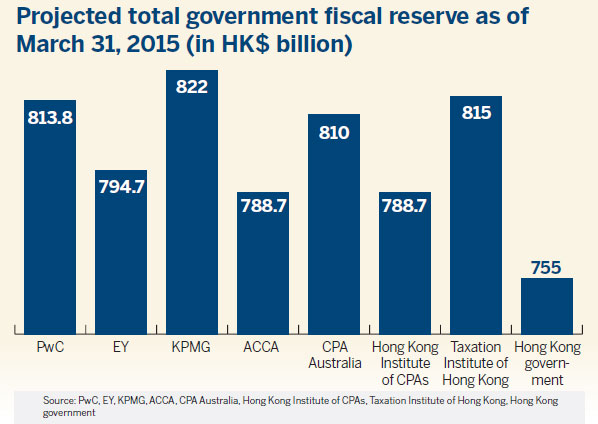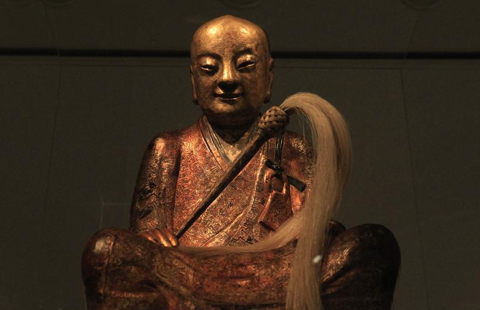Call for wise spending as SAR purse gets fatter
Updated: 2015-03-06 07:07
By Oswald Chan(China Daily USA)
|
||||||||


Expand narrow tax base
Among the various aspects of the suggested tax system review, exploring options to expand the narrow tax base is the most significant.
Hong Kong is heavily dependent on direct tax receipts, based on the 16.5 percent profits tax and 15 percent salaries tax levied. There are no other indirect taxes such as a sales tax, a dividend tax or capital gains tax in the SAR. The government abolished estate duty in 2006 and wine tax in 2008.
According to data from the Taxation Institute of Hong Kong (TIHK), only 1.6 million of the working population - out of a total of 3.6 million employed - pay salaries tax. And of these 1.6 million salaried taxpayers, around 200,000 contribute 80 percent of the total salaries tax receipts, while just 800 companies contribute 60 percent of total profits tax receipts.
"Reducing reliance on direct taxes and enhancing the proportion of indirect levies to boost tax receipts is already the international trend. The Hong Kong government should formulate a long-term plan now on how to reform the city's narrow tax base. The administration cannot remain complacent until external macroeconomic conditions warrant reform," cautioned Curtis Ng Yiu-fai, 2015-16 budget proposals subcommittee convener at the Hong Kong Institute of CPAs.
"We suggest the administration conduct a comprehensive review of the city's tax regime, including whether to levy any form of indirect taxes such as a sales tax," said Fergus Wong Wang-tai, chairman of the Association of Chartered Certified Accountants (ACCA).
Joseph Yau Yin-kwun, president of TIHK, explained: "A broadened tax base with new stable sources of income will allow the government to reduce its fiscal reserve and put in more resources to address the long-term social issues of Hong Kong such as education, social welfare and health-care."
CPA Australia suggests that the government consider a 3 percent luxury goods tax as a precursor to a broad-based goods and services tax.
PricewaterhouseCoopers (PwC) tax partner So Kwok-kee envisages that the gridlock of a narrow tax base cannot be resolved within the term of the current administration.
"We expect the current-term government in Hong Kong will not make significant changes to the taxation system but it should kick-start discussions to explore various alternatives to expand the tax base," So said.
KPMG, however, are more cautious toward new forms of indirect taxes. They said levying new indirect taxes, such as a sales tax, should be carefully studied because imposing new taxes will require other appropriate complementary measures.

 Living amid the mountains
Living amid the mountains
 Plane skids off LaGuardia runway during snowstorm in NYC
Plane skids off LaGuardia runway during snowstorm in NYC
 The Legend of Mulan told at Lincoln Center
The Legend of Mulan told at Lincoln Center
 Six things you may not know about Awakening of Insects
Six things you may not know about Awakening of Insects
 Top 10 favorite gift brands of rich Chinese men
Top 10 favorite gift brands of rich Chinese men
 Buddha statue with mummified monk is museum draw
Buddha statue with mummified monk is museum draw
 Across Canada March 4
Across Canada March 4
 Seven things you may not know about Lantern Festival
Seven things you may not know about Lantern Festival
Most Viewed
Editor's Picks

|

|

|

|

|

|
Today's Top News
Birthing centers mum after raid in California
4 Chinese students look to take 'risk'
China likely to maintain 7% growth for 20 years
China's top two train makers to merge
Finance Minister: no spending spree
US fails to grasp China's terror laws
Militaries' cooperation 'key' in ties
China, California address climate, energy issues
US Weekly

|

|








